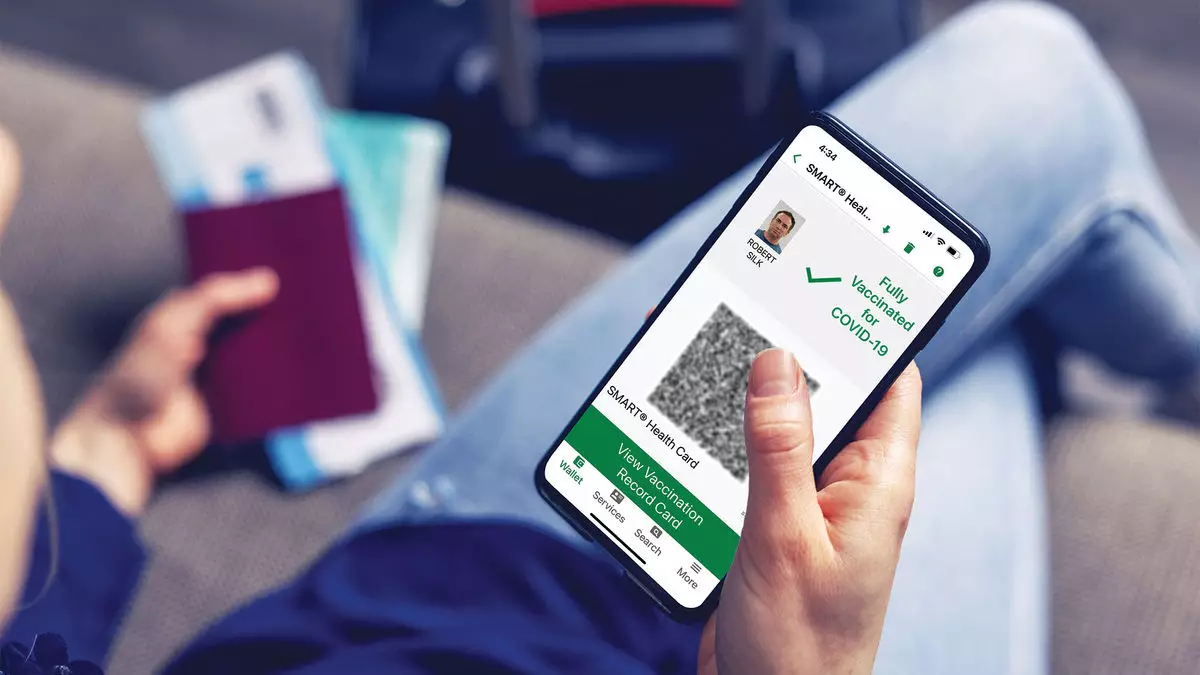The world has recently witnessed another public health crisis with the mpox outbreak in Central Africa, reminding us of the ongoing challenges posed by infectious diseases. However, as we navigate this landscape, the progress made during the Covid-19 pandemic in establishing digital vaccine credentials offers a silver lining that could ease future health emergencies and facilitate international travel.
The Evolution of Digital Vaccine Credentials
The Covid-19 pandemic saw an unprecedented push towards digital health solutions, particularly in the domain of vaccination records. Heather Roth, the director of the immunization branch at the Colorado Department of Public Health & Environment, emphasizes that the foundational work undertaken during this crisis has provided a template for future efforts. The introduction of Smart Health Cards—digital immunization records that encode personal health information in a secure and standardized format—has changed the way we interact with travel regulations.
Currently, this system has been adopted by health departments in 25 states across the U.S., and has also found a foothold internationally, with countries like Canada and Japan endorsing this digital format. The World Health Organization (WHO) has approved these cards, recognizing them as compliant vaccine credentials in conjunction with other global standards. This integration not only simplifies documentation for travelers but also prepares nations for an organized response in the event of future outbreaks.
According to JP Pollak, co-founder of the Commons Project, which has been instrumental in developing Smart Health Cards, the emergence of mpox highlights the importance of these digital systems. As new health crises appear on the horizon, they can be rapidly adapted to incorporate additional safety measures, such as a new QR code specifically for mpox vaccinations. This flexibility is crucial in a world where outbreaks can arise suddenly and require swift governmental and societal responses.
For instance, the transition from Covid-19 vaccine verification processes to those required for mpox is not a matter of creating a new system; it involves augmenting an existing framework that has already shown its effectiveness. With the capacity for airlines and border agencies to scan QR codes, the experience for travelers can remain streamlined, minimizing disruptions to international travel even during public health emergencies.
Accessibility and Convenience in Travel
Despite the global normalization of travel, the need for accessible vaccination records persists. In many regions, such as South America and parts of sub-Saharan Africa, travelers may still require proof of vaccinations for diseases like yellow fever. States like Colorado have proactively addressed this need by launching online portals that provide immediate access to personal immunization records.
Digital platforms such as Docket, an app that allows users to store their vaccination records, have further expanded functionality to ensure that individuals can quickly access necessary documentation, even while en route to their flights. This kind of convenience is crucial, especially for individuals who may have overlooked pre-travel health requirements, and it showcases the significant strides made in providing easy access to health information.
The establishment of the International Patient Summary (IPS) initiative marks another significant advancement in health data accessibility. With the collaboration of over 40 countries, this project aims to create interoperable medical records that healthcare providers can utilize globally. The implementation of IPS QR codes is a revolutionary step that allows individuals to carry their complete health histories with them, ready to be presented for treatment when abroad.
This initiative has already proven its worth in early implementations, such as the digitization of health records for Malaysian travelers during the Hajj pilgrimage. Such innovative systems enable healthcare providers to easily interpret and respond to the medical needs of travelers, despite language barriers or differing medical practices.
Looking Ahead: Preparing for Future Crises
As the global community grapples with threats like mpox and the ever-evolving nature of infectious diseases, the critical infrastructure of digital health credentials will play a vital role in future preparedness. Health officials unanimously agree that it is not a matter of “if” but “when” the next public health crisis will arise. By leveraging past experiences from the Covid-19 pandemic and continuing to innovate in digital health solutions, we can establish a resilient framework that simplifies public health responses and bolsters international travel.
Ultimately, the ability for individuals to access and present their health information seamlessly will not only empower travelers but also enhance the collective response to emerging health threats. It is an ongoing journey towards a more informed, prepared global society—a goal we all must strive for.

